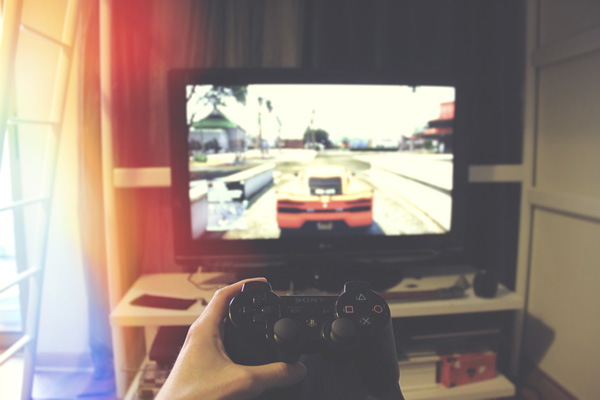Junwei Wang's discovery links prolonged TV and video viewing to a higher risk of nocturia

[Playstation. Photo Credit to Pixabay]
Dr. Junwei Wang, a distinguished doctor from the Department of Urology at Wenling Hospital Affiliated with Wenzhou Medical University, has unveiled a significant correlation between prolonged TV and video viewing in adults and a heightened risk of experiencing nocturia – the need to wake up and urinate during the night.
The study aimed to examine the relationship between television (TV) and/or video viewing time and the occurrence of nocturia in adults.
The study involved utilizing survey questions to measure the amount of time participants spent watching TV or videos over the past 30 days.
The responses were then categorized into six groups: less than one hour, one hour, two hours, three hours, four hours, and five hours or more.
Another survey assessed the frequency of nocturia for each participant.
The response options ranged from “zero voids/night” to “five or more voids/night,” and participants reporting two or more voids/night were categorized as experiencing nocturia.
Lastly, statistical analyses were conducted following the guidelines of NHANES(National Health and Nutrition Examination Survey), considering variations in nocturia prevalence across different demographic and health-related factors.
The data analysis was conducted using a particular type of software, which presented results through logistic regression models.
Based on the outcomes of Wang’s study, individuals in the group with the longest TV or video viewing time had a significantly 48% higher risk of experiencing nocturia compared to those with the shortest TV or video viewing time.
Logistic regression analysis revealed that several factors, including older age, higher BMI, lower education level, the presence of diabetes, and increased TV/video viewing time, were associated with a higher likelihood of experiencing nocturia.
Subgroup analyses indicated consistency in the relationship across various demographic and health-related factors.
One of the reasons contributing to this relationship is that prolonged TV watching might contribute to sedentary behavior, leading to leg swelling, often referred to as dependent edema due to prolonged sitting or lying down.
This condition results in fluid accumulation in lower body parts, causing discomfort and heaviness, which may lead to increased urine production during the night.
When individuals with dependent edema lie down to sleep at night, the accumulated fluid in their legs redistributes throughout the body due to changes in posture.
This redistribution of fluid increases the overall blood volume and fluid load on the kidneys, leading to an increase in urine production during the night.
Other reasons, such as excessive snacking and beverage consumption, neurological function impairment, and elevated inflammatory markers, were also highlighted.
Dr. Wang emphasized the need for public health campaigns to raise awareness about the potential health risks associated with extended TV and/or video watching.
He also suggested clinical considerations, demonstrating how healthcare professionals should consider discussing sedentary behaviors, including TV-watching habits, during patient consultations, especially among those presenting with symptoms of nocturia.
In conclusion, Dr. Junwei Wang’s research establishes a clear link between extended television or video consumption and an increased likelihood of experiencing nocturia in adulthood.
Addressing this correlation could pave the way for healthcare providers to better identify, manage, and resolve associated medical conditions.

- Suh Kyung (Chloe) Yu / Grade 11
- Chadwick International School

![THE HERALD STUDENT REPORTERS [US]](/assets/images/logo_student_us.png)
![THE HERALD STUDENT REPORTERS [Canada]](/assets/images/logo_student_ca.png)
